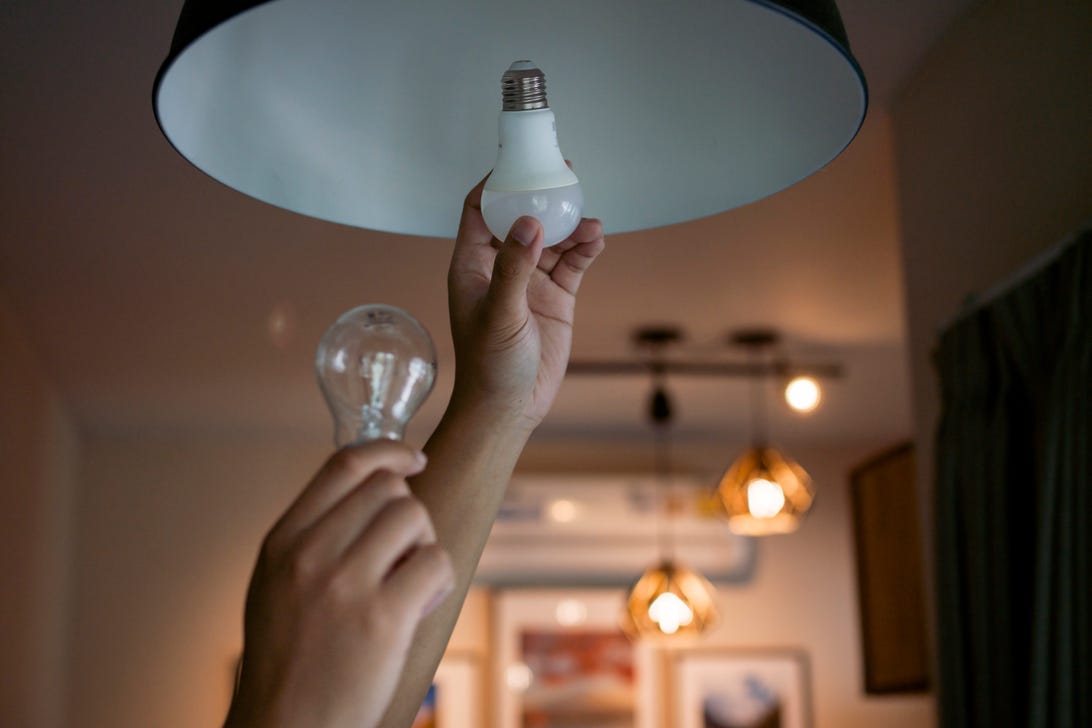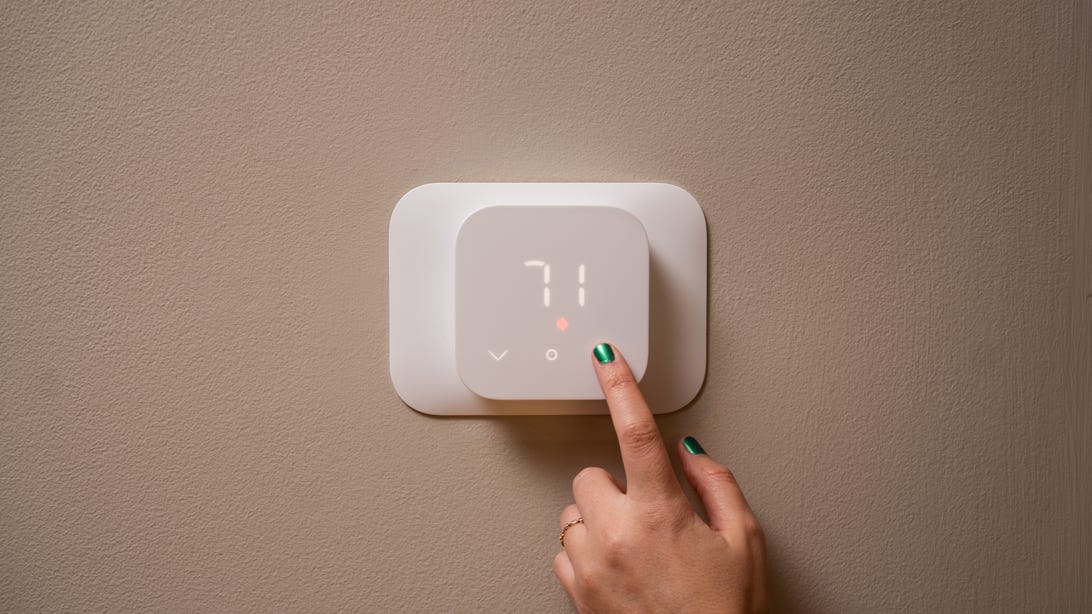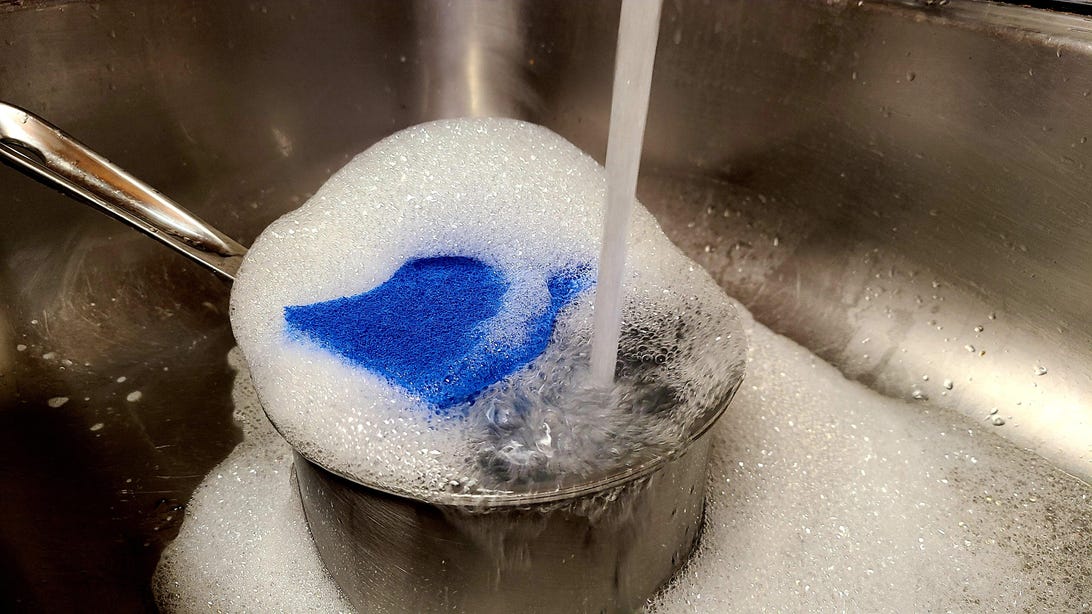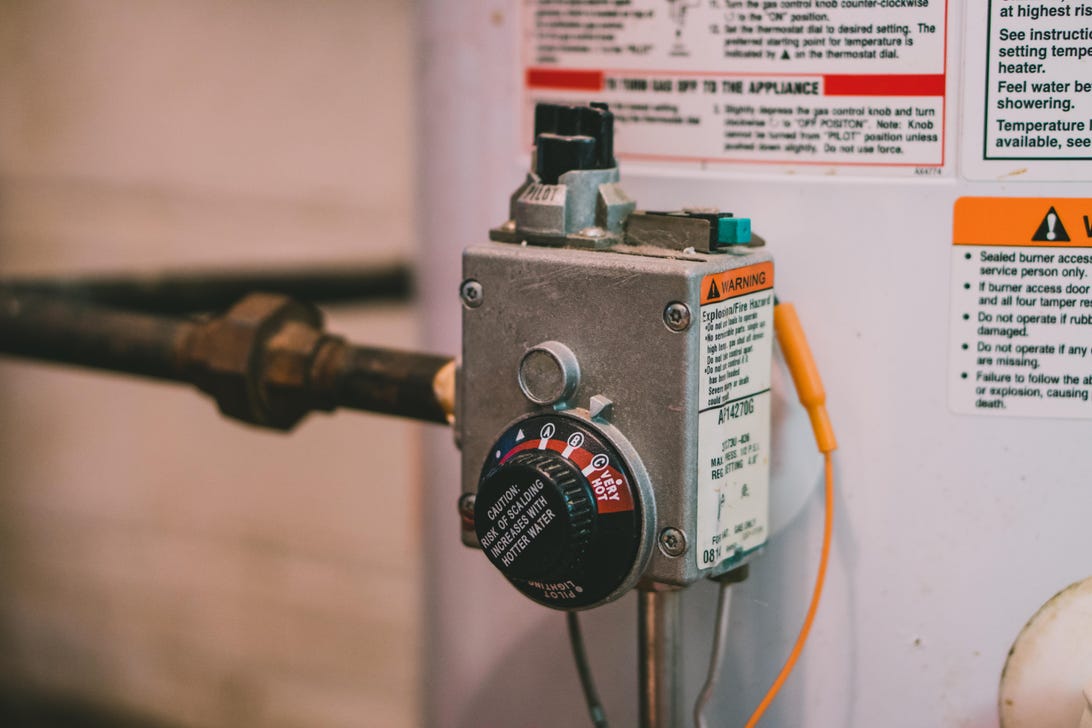[ad_1]

Modest adjustments about your condominium or townhome can conserve you massive on your utility charges.
Thana Prasongsin/Getty Visuals
When striving to appear up with strategies to make your living house more electricity-economical, you may believe about key variations or dwelling jobs like weatherstripping, acquiring strength-successful appliances or insulating your attic. But what if you are a renter?
You can not exactly undergo huge tasks as an condominium dweller or renter since even smaller variations could final result in a lease violation. The great news is that there are tricks and units that can enable you with extensive-time period financial savings.
With gas and drinking water expenses and strength price ranges up 30% from past 12 months, it can be vital to consider about electricity-savings. Turning off lights, placing your thermostat to an best temp and showering instead of bathing are some apparent means to reduce down, but there are some other tips to preserve as a renter. This is 10 practical ways to get started saving now.
1. Switch your lighting
When I moved into my condominium in Charlotte, North Carolina, just one of the 1st matters I did was put in intelligent lighting. Why? It can be straightforward and oh so productive. Just swapping out a few bulbs in your lamps or overhead lights can have a large effect on your monthly invoices.
Moreover, clever lighting is not going to crack the financial institution. You can uncover quite a few LED good bulbs from trustworthy manufacturers that value $20 apiece or much less.
And if you want to help save large on your energy invoice but never essentially want all the smarts, normal LED bulbs are a terrific spot to start. With or with no the smarts, LED bulbs are significantly extra effective than aged-school incandescents. In fact, LED bulbs use about 75% less than incandescent bulbs.
2. Get the most out of your thermostat
Sensible thermostats that immediately regulate the temperature of your space are a single of the most effective strategies to conserve. Several newer flats will occur with sensible thermostats now mounted, but what if you do not have an apartment with a clever thermostat? You could usually chat with your landlord about installing a single on your own, but as soon as a clever thermostat is set up, it will be complicated to clear away it again when you inevitably shift out.
The very good information is a common thermostat is also effective Electrical power Star suggests a programmable design used correctly can include up to $180 in yearly price savings. To preserve the most, make absolutely sure you established your thermostat to the perfect temperatures in equally summertime and wintertime.
In accordance to the US Office of Strength, the ideal method for being cool nonetheless reducing utility expenditures in summertime is to preserve your home hotter than usual when no just one is residence and then placing the temperature as higher as comfortably feasible when house. And it really is related for winter: It really is greatest to hold your thermostat at 68 F for most of the day during the winter season year and then you can turn the temperature down by between 7 and 10 degrees when absent or asleep.
Here is much more strategies to preserve strength and income with your thermostat.

Wise thermostats have excess options that assist you preserve funds more than time.
Chris Monroe/CNET
3. Do laundry the ideal way
As an individual who does laundry 2-3 times a week, I am always hunting for methods to do laundry far more effectively so my monthly energy and water expenditures usually are not staggeringly high. There are many ideas to help save in the laundry area that does not demand hand-washing or line-drying your clothes.
1 straightforward trick? Go cold. Basically washing your garments in chilly water can have a major impact on your cost savings since a whopping 90% of the power applied to wash a load goes into heating the h2o, according to Consumer Experiences.
4. Unplug products and appliances
Be wary of electrical power vampires (and no, I am not talking about Edward Cullen). Vitality vampires are units and appliances that eat electricity when they’re plugged in, but not in use. Selected things like toasters and telephone chargers silently use up strength at all periods and increase your payments, so merely unplugging these products can help you help you save.
Find out exactly how a great deal you can help save by unplugging appliances here.
5. Shower smarter
The average American household uses more than 300 gallons of water every day, according to the Environmental Protection Agency. Of course, shortening your showers can help you save on your water bills, but you could also consider purchasing a low-flow showerhead. The EPA estimates that the average household can save $70 in annual water and energy costs by switching to a WaterSense-approved showerhead.
Looking for more smart devices that can help you save on your utilities? Try these devices.
6. Clean dishes the right way
I’ve already mentioned how much water the average household uses. But did you know using that much water equates to about $83 per month on water costs? In addition to shortening showers, showering instead of bathing and using special showerheads, certain dishwashing practices can help you cut down too.
It may be hard to believe, but running your dishwasher uses less water and less energy than hand-washing. Cleaning dishes in the sink can use up to 27 gallons of water per load while an Energy Star certified dishwasher can use as little as 3 gallons per load. An Energy Star dishwasher can also use less than half the energy of washing dishes by hand.
Read more: How much money can Energy Star appliances save you?

Running your dishwasher uses less water and less energy than hand-washing.
Jessica Dolcourt/CNET
7. Look for leaks and other maintenance issues
One simple water leak, a constantly running toilet or a window not fully sealed can cost you big when it comes to monthly utilities. Every so often, scan your apartment for potential hazards or broken objects and then let your landlord know.
Pro tip: Also make sure you’re replacing your air filter at least every three months to prevent your HVAC system from working harder than it needs to.
8. Set your water heater to its ideal temperature
The Department of Energy says hot water heating can account for 14%-18% of an average utility bill. Simply turning your water heater down to 120 degrees Fahrenheit from the default setting could save you up to $400.
If you living in a townhouse or another rental where you have access to the water heater, you can adjust the setting yourself. If you don’t have access, ask your landlord or the maintenance crew for help.
Learn more about your water heater and potential savings here.

Most water heaters are set to 140 degrees Fahrenheit by default.
Taylor Martin/CNET
9. Calculate what you should be spending
When paying monthly bills, it’s important to be mindful about your state’s average cost of utilities to make sure you’re not overspending.
In the US, the average cost of utilities for renters is $240 a month. This estimate includes the basic utilities most apartment dwellers and renters are responsible for — electricity, gas and water — but that number will fluctuate based on location, usage and additional fees like trash, pest control, cable and internet costs.
You can use this interactive map to check the average cost of utilities in your state. You can also use an energy cost calculator to estimate your monthly residential energy usage.
10. Talk to your landlord
If you try these tips and tricks, but still want to improve your residence’s energy efficiency then there’s no harm in approaching your landlord. You can ask if the property owner is willing to make some changes around the apartment or townhome like installing a smart thermostat or weatherstripping windows. If not, you can always follow up by asking if you can make the improvements yourself to be reimbursed later.
[ad_2]
Source link

